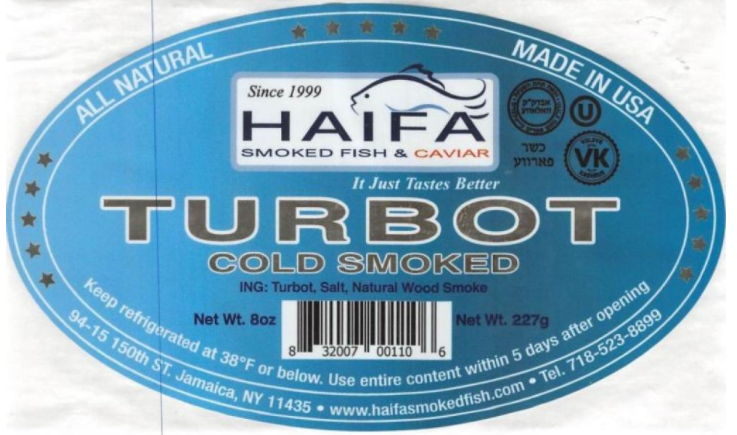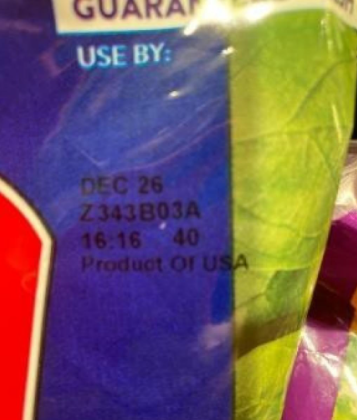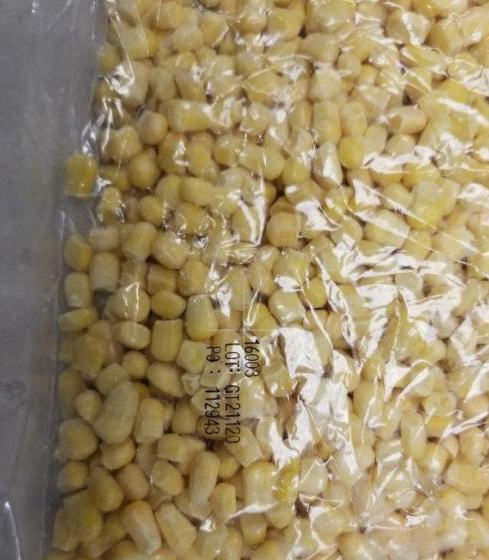The FDA reported that HAIFA SMOKED FISH (Jamaica, NY) recalled approximately 230 LB OF TURBOT COLD SMOKED 8 OZ PACKAGES LOT # 246 because it can be contaminated with Listeria monocytogenes. The product was distributed to New York and New Jersey retail stores. The product is packaged in clear plastic with a gold board containing sliced Turbot fish with a blue label that reads “Haifa Smoked Fish & Caviar Turbot Cold Smoked” Net wt. 8 oz/227g. No illnesses have been reported up to date. The recall resulted from a routine sampling program by the New York State Department of Agriculture which revealed that the finished product is contained with Listeria monocytogenes. Haifa Smoked Fish ceased distribution of the TURBOT COLD SMOKED 8 OZ Lot # 246. @ https://www.fda.gov/safety/recalls-market-withdrawals-safety-alerts/haifa-smoked-fish-inc-recalls-turbot-cold-smoked-8-oz-package-lot-246-because-possible-health-risk?utm_medium=email&utm_source=govdelivery




